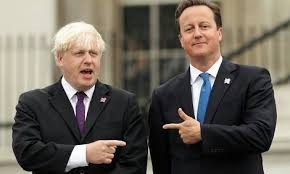 |
| Can you believe a word of it? |
All those questions that occupied us before Covid-19 arrived to scoop the lot - the ones that were not a matter of life and death: remember them?
Is Donald Trump making America Great Again? Will the British be better off for Brexit? Was colonialism all bad? Is government by the ANC any better? Was apartheid a crime against humanity? Oscar Pistorius - guilty or innocent?
Did Americans really land on the moon? Does homeopathy work? Is butter good for you? What exactly do you mean by 'good'?
In an already crowded and noisy world, the internet has finally done for answers. Today there is no opinion, no belief, intuition, revelation, faith, concept, hypothesis, theory, statistic, authority, logic, reasoning - no right, wrong, common sense or well known fact that someone somewhere cannot declare is not true. To Flat Earthers, the world is not round. To an economist, Covid-19 is not a simple matter of life and death.
Yet how does that make sense? If what we hear is false, something else must be true or how do we tell the difference? What is this something called the truth? Who has it and speaks for it? To convince everyone, it must be more than a contrary or contrasting opinion. Is the truth available in every case, can it settle all arguments?
Religion makes its claim here and insists the source is God. But while that is true for the faithful, the problem has always been too many have insufficient faith, or the wrong faith, or no faith. That religion holds the truth is probably the oldest and most disputed truth of all.
Science is more circumspect. Science speaks of what it reveals or establishes as 'regularities' rather than truth. A scientific theory - not, note, a scientific hypothesis - is the surest form of knowledge homo sapiens has because it is tested and observed, observed and tested, to a point where the outcome is predictable. But the word is predictable rather than certain. Scientists see their theories, however tried and trusted, as provisional, not as a metaphor for another world altogether. That remains the inference of non-scientists.
How then to proceed in what is acknowledged as our post-truth, counter-factual age with its debilitating arguments and potential for violence?
One view is to accept that logical argument or facts cannot make us agree with people we disagree with. Disagreements stem from a cognitive or cultural bias, or both. We disagree not because the 'facts' are in dispute or missing, least of all because one or other side is right and wrong, but because we think differently as people.
This is persuasive. We are often told nowadays the difference between left and right has disappeared. But differences are as marked as ever whether people are polled on traditional issues like capital punishment and rape, or on pressing contemporary issues, domestic violence, global warming, same-sex marriage.
When social conservatives disparagingly call liberals 'libtards' and liberals return the compliment by labelling social conservatives 'far right', the difference appears to be fundamental: not one between people, but in people. If that is so, is the difference nature or nurture - in today's parlance, hard-wired or learned? Does that explain why so many insist multiculturalism does not and cannot work while millions of others pin their hopes on it?
We seem trapped in an ever-revolving door with these questions. Yet there is a way out, so wide open it is considered absurd, if not profane, to point it out: there is no such thing as the truth - that is merely the way we use words. If you stop speaking of the truth and claiming you possess it, the problems disappear.
After thousands of years of knowing otherwise, people find this idea preposterous. How could anyone do that? How would we know right from wrong, good from bad, sense from nonsense? If there's no truth, what would replace it?
Oddly enough, you have just said it: knowing would replace it. Knowledge is the word we should use, not truth. Try it ...
Some readers know President Trump is the greatest US President ever; some know he is the worst. They both know it for sure, but neither is true ...
Helen Zille definitely knows colonialism wasn't all bad, but a million EFF supporters in South Africa know it was. Insiders know the US moon landing was faked, except those who know for a fact Apollo 11 landed on the moon ...
And so on. You see, we know what we know and it works perfectly for everyone; no more arguments, no more fights.
"Nah! None of this BS's true."



